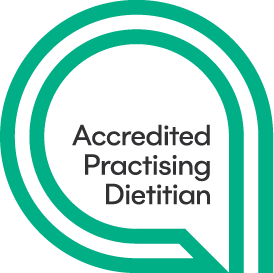A plant-based diet has been recommended by many health professionals because there is mounting evidence to show that it is an excellent, non-invasive tool to prevent, treat and even reverse some of our most common and debilating chronic diseases today in the Western world. The power of plants in healing our body is quite incredible. There are several health benefits of adopting a plant-based diet, but today we will look at just a few of the key benefits (to keep it short and readable!).
Improves Heart Health
Plant-based diets are naturally low in the unhealthy saturated fats that’s commonly found in animal products, leading to a better functioning heart. Saturated fats are bad for our heart health as these unhealthy fats contribute to plaque formation in our artery walls, increasing the risk for blockages (strokes and heart attacks). Cholesterol is found exclusively in animal products (yes, even leaner cuts of meat!) whereas there is no cholesterol found in plant foods. Even though dietary cholesterol contributes less to plaque formation than saturated fats do, it still plays a significant role in this disease (1).
A study from The American Heart Association found that eating more plants and less animal products resulted in a 16% decreased risk of developing cardiovascular disease and 31% decreased risk of dying from it (2). Focusing on healthy whole plants are important though, rather than refined junk foods. Aim to eat from the following food groups daily: Fruits, vegetables, wholegrains and legumes (inlcuding nuts and seeds). This is important as unhealthy plant-based diets can also increase our risk. For example, a study conducted by The Journal of American College of Cardiology examined 209,000 adults over 2 decades (3). They were grouped into 3- One ate a healthy plant-based diet while reducing the intake of animal products, the second ate a healthy plant-based diet while reducing the intake of less healthy plant foods and animal products, and the third group ate only the less healthy plant-based foods while decreasing the intake of animal products. Of course, the second group who ate healthy plant foods had the lowest risk of developing heart disease and were more active and leaner than the other groups. Some promising (but small) studies even suggest that a strict whole food plant-based diet can reverse plaques in the artery wall! (4).
Prevents/Treats/Reverses Type 2 Diabetes
Plant-based diets can help prevent, treat and even reverse type 2 diabetes. How is this so? Well in order to understand how this condition can be reversed, it is important to know what causes type 2 diabetes. The majority of people I would ask this question to would say it was sugars, when in fact, it is fat! Fat causes type 2 diabetes because when someone consumes a diet rich in saturated fats, trans fats and cholesterol, this can build up within the cells. When there is fat built up withing the cells, these can resist the action of insulin (a hormone in carbohydrate metabolism) resulting the sugars remaining in the bloodstream. Of course, including sugary, refined foods will cause sugars to shoot up, so best for those with type 2 diabetes to choose foods that absorb slower. These are known as low GI foods. Remove the bad fats and you eliminate the fat build-up within the cells. If the pancreas is not too damaged at this point and can still produce insulin, this condition may be completely reversible, because the insulin can then take the sugars from the blood stream and send it where it is needed for energy (5).
Helps You Lose Weight
Plant-based diets are naturally high in fibre and low in fat which allows us to fill up on healthy, nutrient-rich foods without overeating. Fibre fills us up and contributes zero calories but a whole lot of health benefits including a healthy and diverse gut microbiome and well-finctioning digestive system. This is vital for overall health and well-being and these little bacteria that live in our gut can promote disease or promote health, depending on what we feed them (i.e- what we eat). They can also switch genes on and off, with healthy plants allowing the good bugs to switch on health promoting genes and switch off disease-promoting genes (6).
Plant-Based Diets May Prevent Cancer
Plant-based diets have been shown to be protective against a variety of cancers but the most studied include breast, prostate, colorectal and gastrointestinal cancers. Dairy and eggs stimulate the production of IGF-1 (insulin like growth factor) which is critical for cell growth, but too much in the blood can increase the risk for cancer cell growth. After 11 days of cutting animal products, one study found that circulating IGF-1 reduced by 20% and the levels of cancer protective IGF-1 protein increased by 50% (7).
Cooked meats results in hetrocyclic amines from cooking meat at high temperatures (roasting, pan frying, grilling and baking). The chemicals occur when muscle in meat such as beef, pork, fish and poultry is cooked using high temperatures. High intakes of meat increases the risk for breast, colorectal and gastrointestinal cancers. One study found that women who ate their meat well done had a 5-fold increase for developing cancer (7). Another important point to note is that many studies have shown soy consumption to be protective against cancer development (particularly breast cancer) and the survival rate for cancer survivors was 90% compared to 50% in those that did not consume much soy (7).
These health benefits are just the tip of the ice-berg, plant-based nutrition can help with a variety of issues including but not limited to skin health, improved athletic performance, improved energy, reduced headaches, skin conditions such as psoriasis and skin rashes, reducing blood pressure and cholesterol, the list goes on! We will have to do these on another day though 🙂







